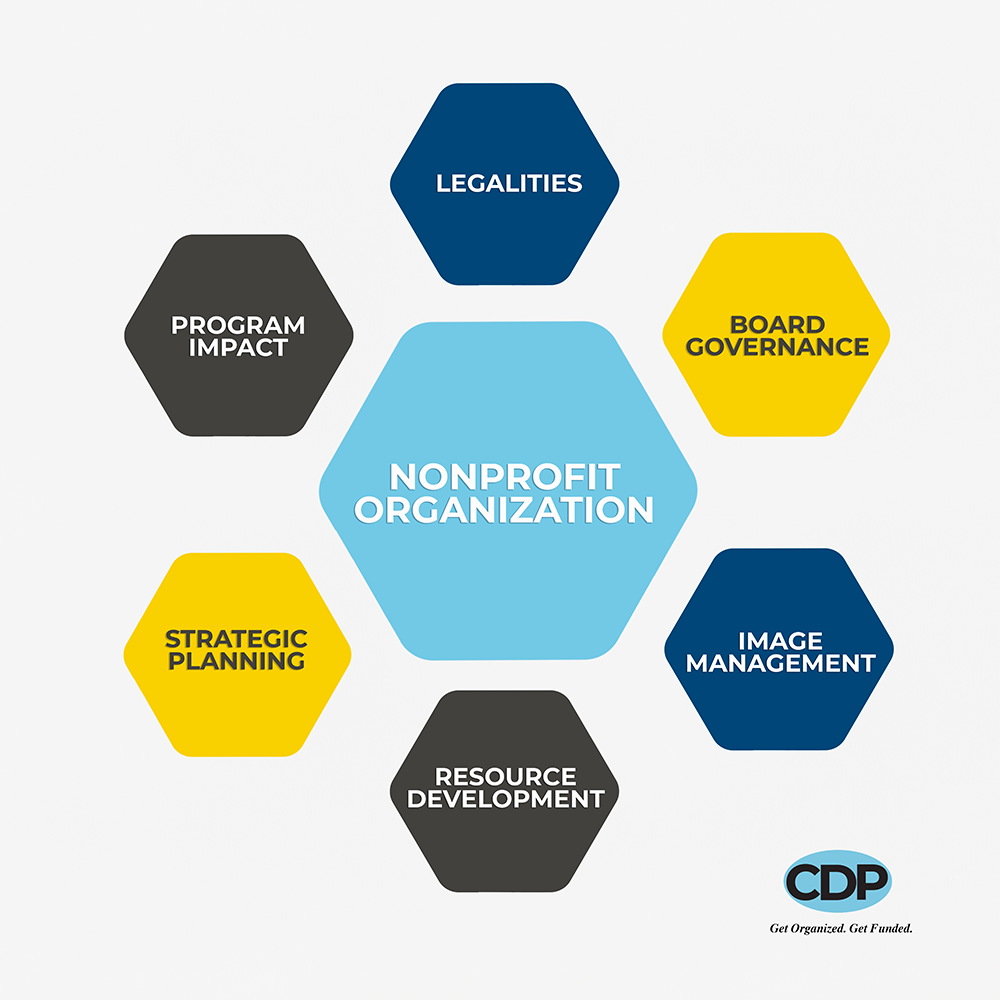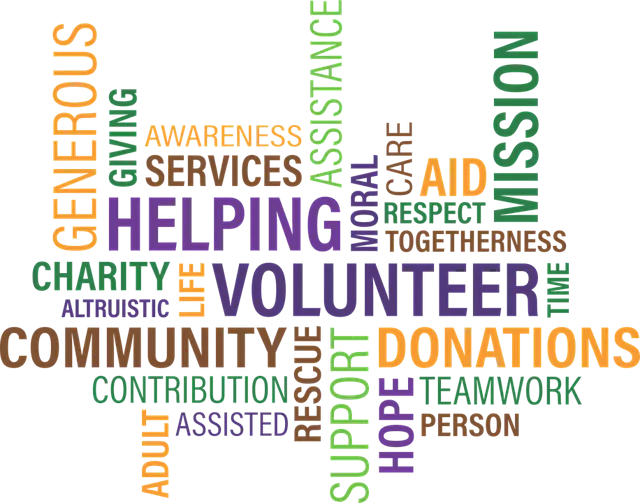Partner with a Nonprofit Agency to Boost Your Organization's Success
Partner with a Nonprofit Agency to Boost Your Organization's Success
Blog Article
Discovering the Diverse Functions and Responsibilities of a Nonprofit Agency in Dealing With Social Issues and Supporting Change
Not-for-profit firms serve as crucial agents of change within culture, tackling a myriad of social problems through complex techniques. Their responsibilities expand past plain service stipulation; they engage in campaigning for, resource mobilization, and area outreach, frequently acting as a bridge in between essential solutions and marginalized populations.
Comprehending Nonprofit Agency Roles
The effectiveness of not-for-profit companies rests on a clear understanding of their varied duties within culture. These companies function as important intermediaries between the public, personal, and governmental industries, addressing different social issues and advocating for adjustment. Nonprofit firms typically function as solution suppliers, providing necessary programs and sources to underserved populaces. This role is important in loading voids that may exist in civil services, making sure that prone groups have access to needed assistance.
In addition, nonprofits play an important duty in advocacy, increasing awareness and influencing plan choices that affect their neighborhoods. By engaging in study and public education and learning, these companies aid shape public discourse and advertise informed decision-making - nonprofit agency. They likewise offer as systems for volunteerism, setting in motion neighborhood participants to add their time and skills towards collective objectives
Furthermore, nonprofit firms usually act as conveners, uniting varied stakeholders to foster collaboration and cumulative effect. This joint technique boosts their ability to address facility social issues effectively. Recognizing these multifaceted functions is vital for making the most of the possibility of not-for-profit firms in developing lasting social adjustment and boosting overall community well-being.
Neighborhood Interaction and Outreach
Reliable area involvement and outreach are basic elements of not-for-profit firms' approaches to build and cultivate connections count on within the areas they serve. These efforts focus on comprehending area needs, advertising understanding of available sources, and motivating participation in programs designed to address social issues. Nonprofit organizations use a selection of approaches to involve with area members, such as workshops, informational sessions, and collective events.
Outreach initiatives serve to reinforce partnerships with varied populaces, especially marginalized teams who might face obstacles to accessibility. By making use of culturally relevant communication strategies and leveraging local partnerships, nonprofits can enhance their exposure and demonstrate their commitment to neighborhood empowerment. This method not only cultivates a sense of belonging but additionally raises the possibility of sustained involvement.
Additionally, effective community involvement exceeds simple involvement; it entails proactively paying attention to area members' feedback and including their insights right into program advancement. This joint procedure makes certain that the services used are responsive, relevant, and tailored to the one-of-a-kind obstacles faced by the community. Eventually, cultivating solid links via engagement and outreach can cause more impactful interventions and a better collective effort toward promoting positive social change.
Campaigning For and Plan Influence
Campaigning for offers as a crucial mechanism for not-for-profit agencies to affect public plan and drive systemic adjustment. By leveraging their competence and community insights, these organizations can successfully stand for marginalized populations and address pressing social issues. Nonprofits engage in campaigning for via various methods, consisting of public awareness projects, grassroots mobilization, coalition building, and direct lobbying of policymakers.
Through these efforts, not-for-profit firms intend to shape legislation and policy frameworks that line up with their mission and the needs of the areas they offer. They carry out research, gather information, and share compelling stories to highlight the seriousness of particular concerns, making certain that decision-makers are educated and encouraged to act. This process not just amplifies the voices of those influenced by social oppressions yet likewise promotes an extra comprehensive and fair policymaking environment.
Furthermore, advocacy initiatives often seek to create long-term structural adjustments, addressing root triggers instead of simply minimizing signs and symptoms. By focusing on plan impact, not-for-profit companies add to a wider understanding of social obstacles and promote solutions that can cause lasting renovations in societal well-being. Eventually, campaigning for is essential to the transformative duty nonprofits play in creating a just and fair culture.
Fundraising and Resource Management
Nonprofit firms rely on durable fundraising and source management approaches to sustain their advocacy initiatives and maintain their objectives. By using a multi-faceted technique, nonprofits can minimize the threats associated with reliance on a single financing source.
Resource administration is equally critical, as it includes the strategic appropriation of both human and financial sources to maximize impact. Nonprofits should create spending plans that straighten with their goals while making sure transparency and responsibility to stakeholders. This involves routine surveillance of expenditures and changing methods as required to enhance source use.

Cooperation and Collaborations
While many organizations seek their goals individually, collaboration and partnerships can significantly improve the performance of not-for-profit firms. By interacting with other nonprofits, federal government entities, and personal market companies, nonprofits can merge resources, share know-how, and amplify their impact on social problems. Collective initiatives typically bring about ingenious solutions that might not be attainable independently, leveraging the strengths of each companion to address complicated obstacles.

Inevitably, reliable partnership needs clear communication, shared objectives, and shared regard amongst companions. By embracing a cooperative technique, nonprofit firms can create lasting networks that not only address instant social issues however additionally add to long-lasting systemic change, cultivating a much more equitable culture. Via collaboration, nonprofits can prosper and optimize their potential for purposeful influence.
Final Thought
Not-for-profit agencies work as critical entities in promoting and dealing with social look at this web-site issues adjustment within communities. Through diverse functions such as neighborhood involvement, resource, and campaigning for monitoring, these companies successfully mobilize resources and assistance for underserved populaces. Their joint initiatives with numerous stakeholders improve the capacity to affect public law and promote structural modifications. Eventually, the multifaceted duties of nonprofit agencies considerably contribute to the pursuit of social justice and the renovation of neighborhood wellness.
Understanding these diverse roles is crucial for making best use of the potential of nonprofit companies in developing sustainable social change and boosting general neighborhood health.
Effective area involvement and outreach are essential components of nonprofit agencies' methods to construct and promote links depend on within the areas they serve. By working with each other with various other nonprofits, federal government entities, and private sector organizations, nonprofits can pool resources, share experience, and intensify their influence on social issues.Not-for-profit agencies offer as critical entities in visit this site promoting and resolving social concerns adjustment within neighborhoods - nonprofit agency. Inevitably, the complex functions of not-for-profit firms significantly contribute to the quest of social justice and the enhancement of neighborhood wellness
Report this page